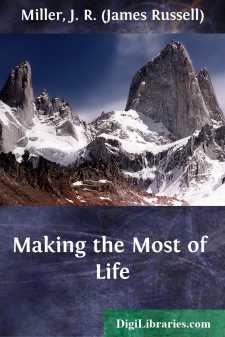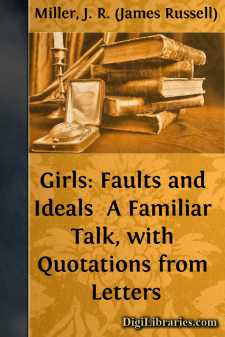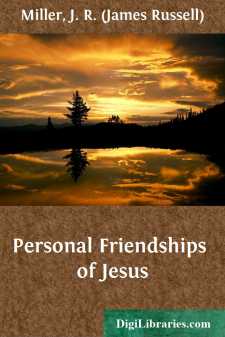Categories
- Antiques & Collectibles 13
- Architecture 36
- Art 48
- Bibles 22
- Biography & Autobiography 813
- Body, Mind & Spirit 142
- Business & Economics 28
- Children's Books 13
- Children's Fiction 10
- Computers 4
- Cooking 94
- Crafts & Hobbies 4
- Drama 346
- Education 46
- Family & Relationships 57
- Fiction 11828
- Games 19
- Gardening 17
- Health & Fitness 34
- History 1377
- House & Home 1
- Humor 147
- Juvenile Fiction 1873
- Juvenile Nonfiction 202
- Language Arts & Disciplines 88
- Law 16
- Literary Collections 686
- Literary Criticism 179
- Mathematics 13
- Medical 41
- Music 40
- Nature 179
- Non-Classifiable 1768
- Performing Arts 7
- Periodicals 1453
- Philosophy 64
- Photography 2
- Poetry 896
- Political Science 203
- Psychology 42
- Reference 154
- Religion 513
- Science 126
- Self-Help 84
- Social Science 81
- Sports & Recreation 34
- Study Aids 3
- Technology & Engineering 59
- Transportation 23
- Travel 463
- True Crime 29
Making the Most of Life
Categories:
Description:
Excerpt
CHAPTER I.
MAKING THE MOST OF LIFE.
"Measure thy life by loss instead of gain;
Not by the wine drunk, but the wine poured forth;
For love's strength standeth in love's sacrifice,
And whoso suffers most hath most to give."
—The Disciples.
According to our Lord's teaching, we can make the most of our life by losing it. He says that losing the life for his sake is saving it. There is a lower self that must be trampled down and trampled to death by the higher self. The alabaster vase must be broken, that the ointment may flow out to fill the house. The grapes must be crushed, that there may be wine to drink. The wheat must be bruised, before it can become bread to feed hunger.
It is so in life. Whole, unbruised, unbroken men are of but little use. True living is really a succession of battles, in which the better triumphs over the worse, the spirit over the flesh. Until we cease to live for self, we have not begun to live at all.
We can never become truly useful and helpful to others until we have learned this lesson. One may live for self and yet do many pleasant things for others; but one's life can never become the great blessing to the world it was meant to be until the law of self-sacrifice has become its heart principle.
A great oak stands in the forest. It is beautiful in its majesty; it is ornamental; it casts a pleasant shade. Under its branches the children play; among its boughs the birds sing. One day the woodman comes with his axe, and the tree quivers in all its branches, under his sturdy blows. "I am being destroyed," it cries. So it seems, as the great tree crashes down to the ground. And the children are sad because they can play no more beneath the broad branches; the birds grieve because they can no more nest and sing amid the summer foliage.
But let us follow the tree's history. It is cut into boards, and built into a beautiful cottage, where human hearts find their happy nest. Or it is used in making a great organ which leads the worship of a congregation. The losing of its life was the saving of it. It died that it might become deeply, truly useful.
The plates, cups, dishes, and vases which we use in our homes and on our tables, once lay as common clay in the earth, quiet and restful, but in no way doing good, serving man. Then came men with picks, and the clay was rudely torn out and plunged into a mortar and beaten and ground in a mill, then pressed, and then put into a furnace, and burned and burned, at last coming forth in beauty, and beginning its history of usefulness. It was apparently destroyed that it might begin to be of service.
A great church-building is going up, and the stones that are being laid on the walls are brought out of the dark quarry for this purpose. We can imagine them complaining, groaning, and repining, as the quarry men's drills and hammers struck them. They supposed they were being destroyed as they were torn out from the bed of rock where they had lain undisturbed for ages, and were cut into blocks, and lifted out, and then as they were chiselled and dressed into form....




